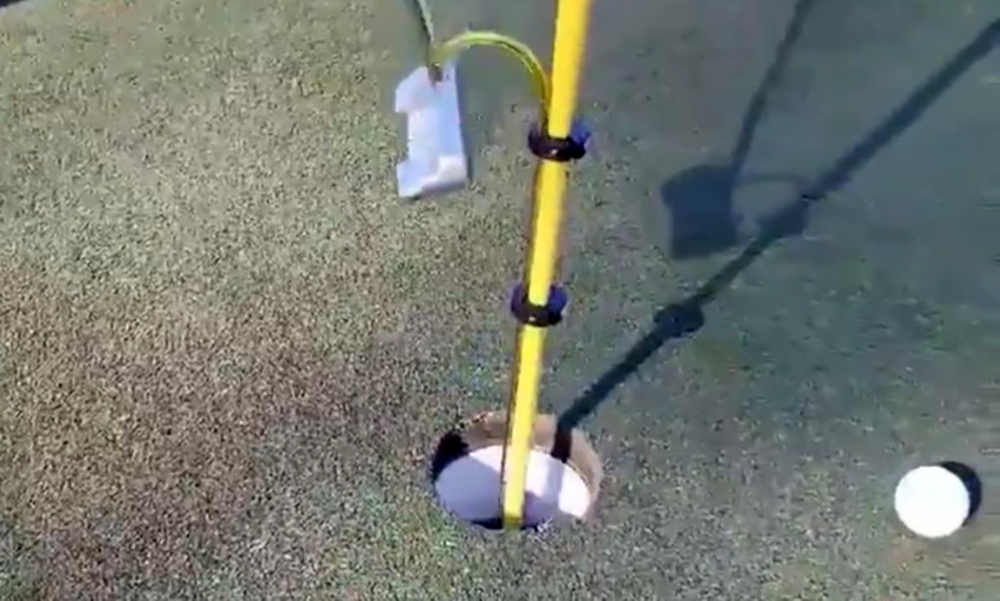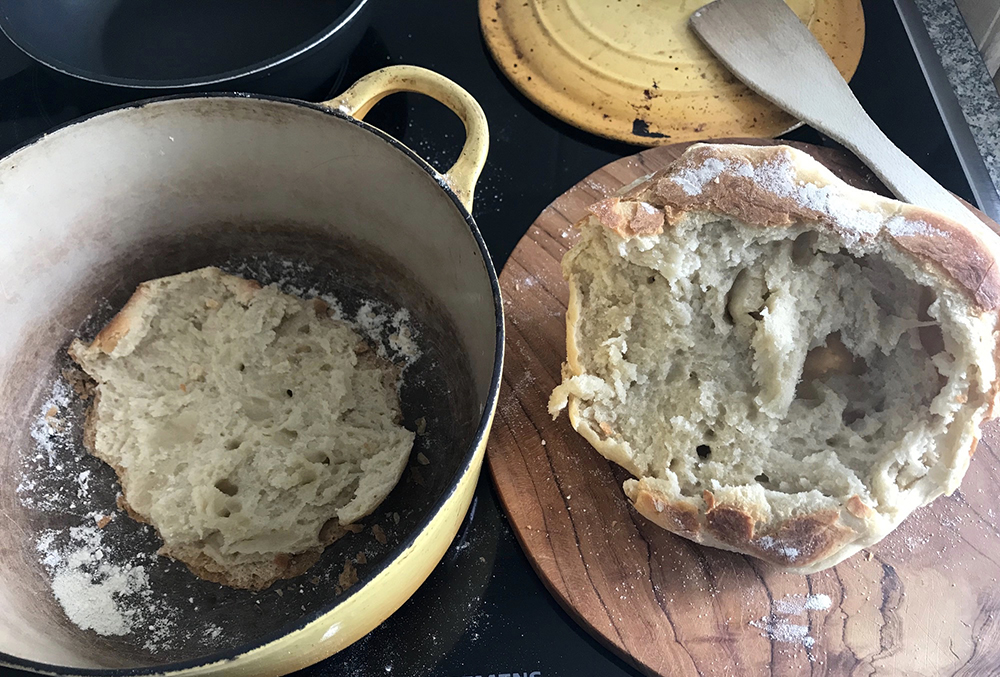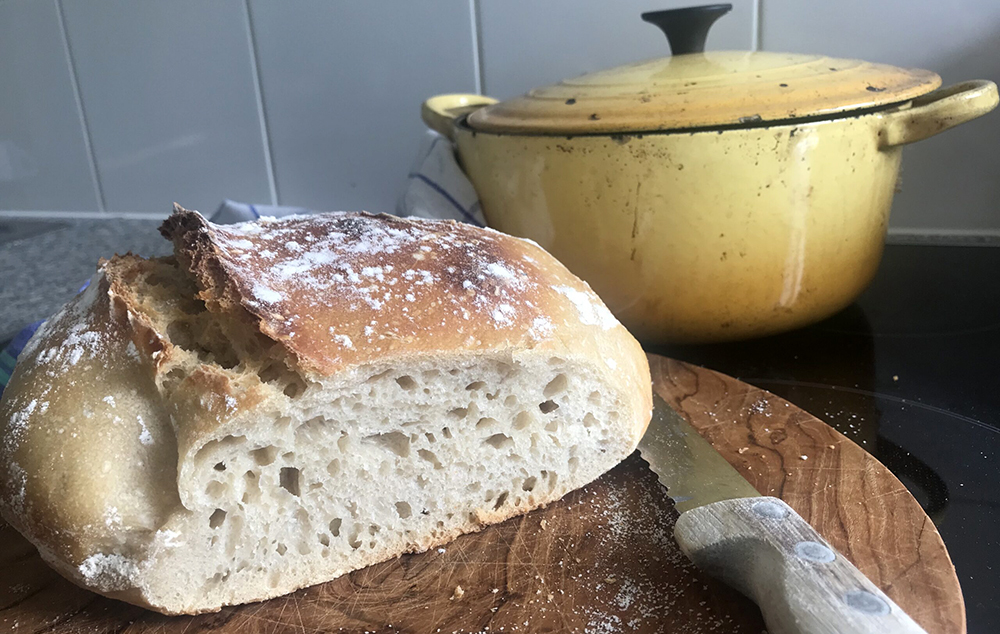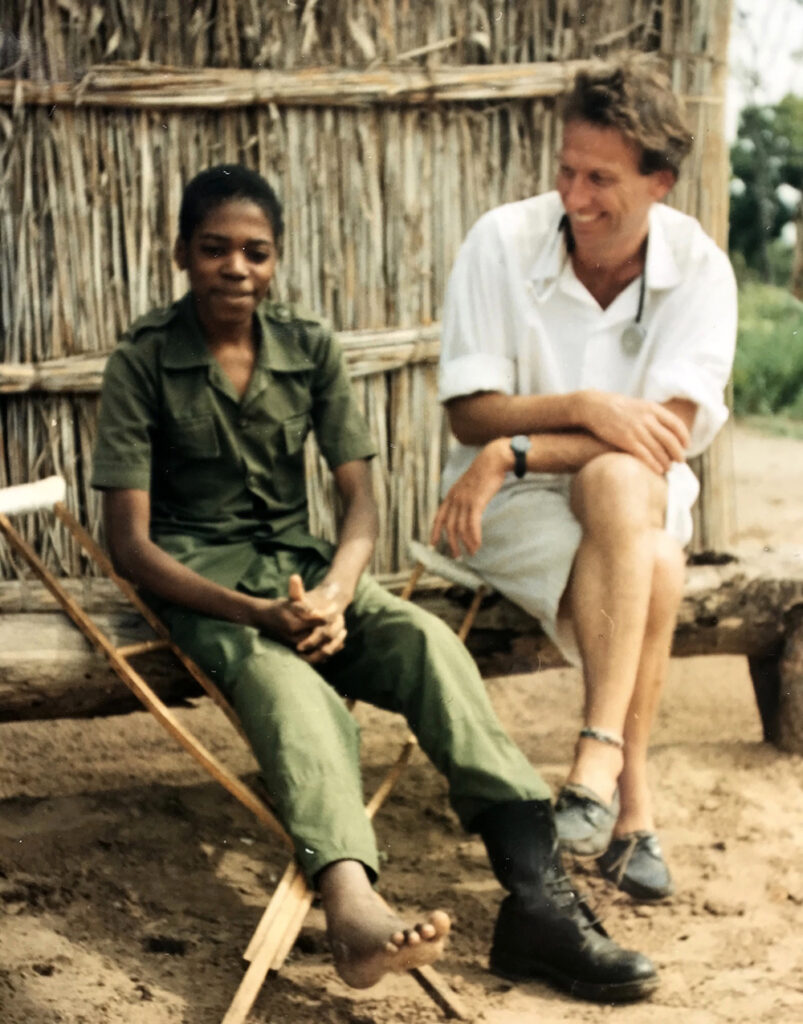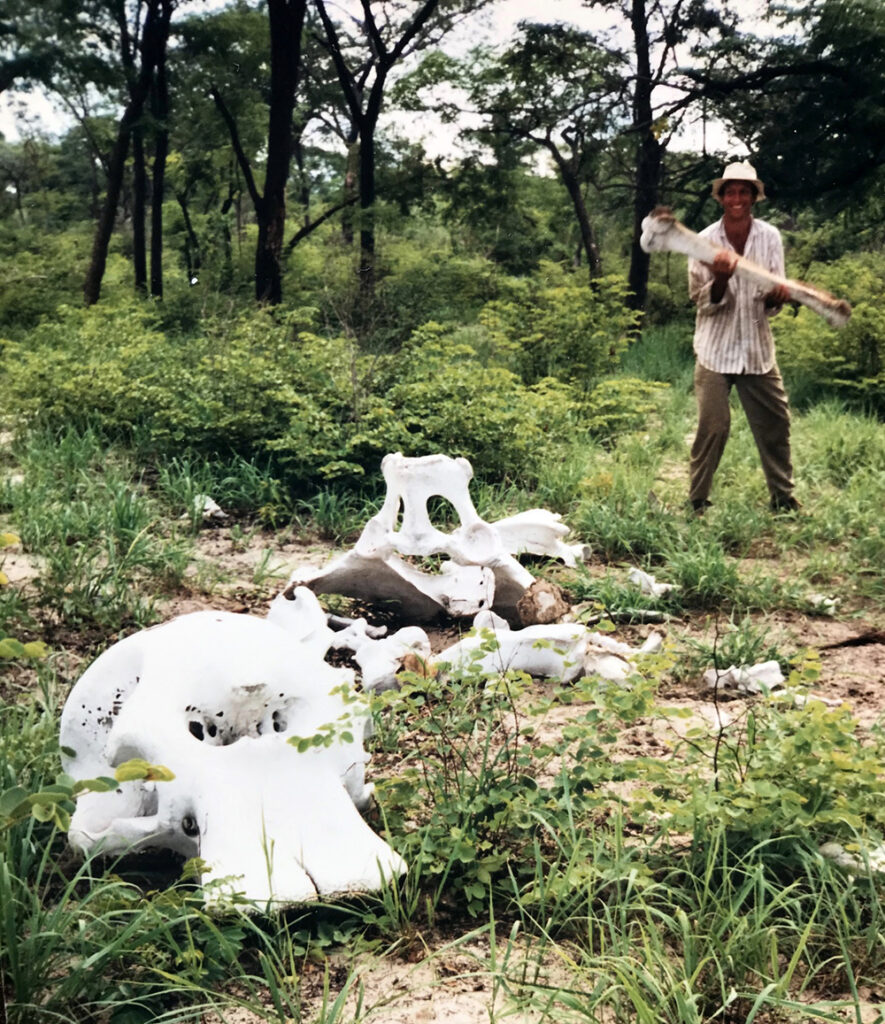Geneva, Monday 27 April 2020
This morning’s trip to the supermarket was wonderfully uneventful. For the first time since lockdown began, there were fresh flowers for sale. This made me inexplicably happy.
Staying in my joy bubble, I was able to tame Donald-the-sourdough-starter to the extent that I goaded him into a delicious bleach-free loaf. Here it is bathing in that ultravioletful balcony sunlight waiting to be eaten with my disinfectant-less mulligatawny soup made from the vestiges of last night’s chicken curry.
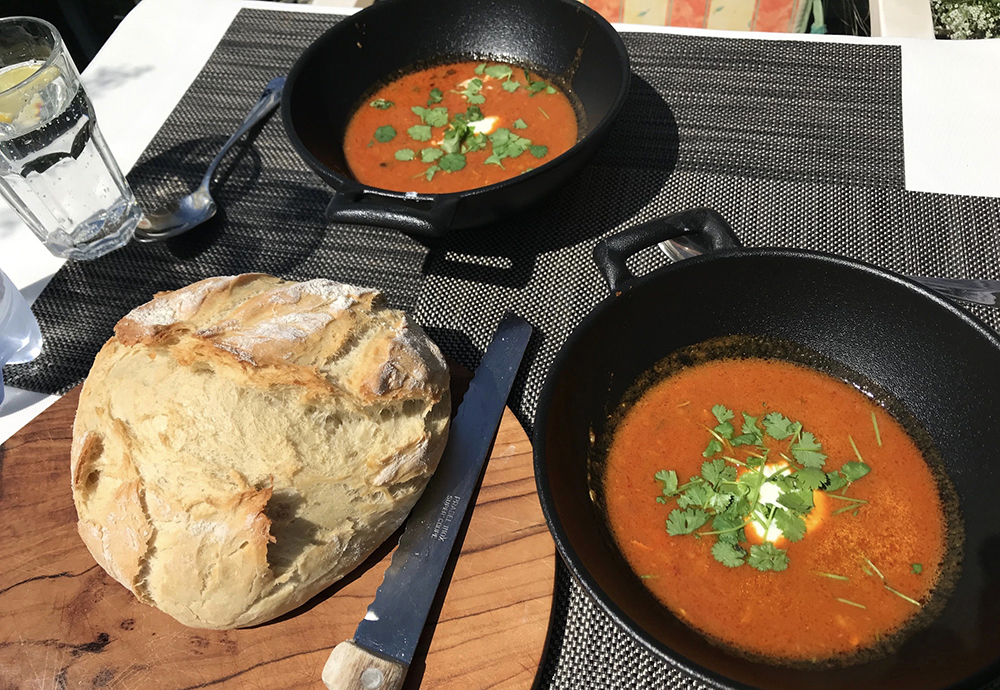
All this positivity has got me thinking about the possible benefits of our lockdown. My wife has discovered that she loves working from home. Yay! We’ll see where this goes. The apartment has had the deep clean; every cupboard has been sorted and rid of its no-longer wanted bits ‘n’ bobs. We’ve experimented with different bread-making techniques: always fun! I have, through this diary, found myself putting stuff into writing that I thought I would never write about. This has proved quite fulfilling and has allowed me to connect and reconnect with many wonderful people. Let’s call my latest painting adventure work in progress; but I have found a style and materials that do not require a studio; (lack of which was the main reason for not painting over the last ten years.) I have read a ton of books. My putting has improved.
My wife and I recognise that, to present, we have got off lightly. The time of COVID-19 lockdown cannot have been anything but dreadful for many people. Apart from world-wide job losses and business closures, murder rates have spiked in some countries along with increased reporting of domestic violence. Most bizarre is that calls to the UK’s helpline for “intimate image abuse” (a.k.a. revenge porn) has doubled. I can only imagine that this is because some people are spending that much longer engaged in and being driven by the less savoury applications of social media.
As to the origin of this virus, the more sensible voices out there seem to be be coalescing around the started-in-bats theory. It must be quite some mean little bit of single strand RNA because not only are humans infected but also, apparently, cats and mink. Jumping to multiple species, becoming highly contagious within the new species and then, well… going viral, would certainly win gold in the microbial olympics. This one has stamina.
I am fascinated by the COVID-19 statistics from different countries and the comparison thereof. (Bravo, Johns Hopkins!) There are a number of reasons for the differences. These include: when the pandemic hit the country; different reporting criteria (for example, defining what “a COVID-19 “case” is or how a death might be attributed to COVID-19;) the different counter-measures adopted; the population and the population density; public health infrastructure; and, quite simply, whether the virus affects people in different countries in different ways. Probably all come into play and will be the subject of PhD’s for years to come. Inevitably there are political implications. Sweden’s relaxed approach to social distancing seems to be causing quite the sensation; however, the Johns Hopkins stats show that the country has yet to reach its peak of daily cases. Keep your eye on this one.

New Zealand has today reported zero cases; this is likely due to savvy political decisions, a country with a refined public health infrastructure and the zero possibility of infected migrant workers slipping over the border and into crowded dormitories during the night. This last seems to be the current and major problem in Singapore. All governments are desperate to restart stalled economies and they are scrambling to find the statistics that justify it. The unlockdown is beginning and we should all be watching with bated breath. The elephant in the briefing room is the resumption of international flights.
This virus has put us in our place. At such a time one cannot help but reflect on one’s own existence in relation to humanity, other animals, all other life forms and our planet (and why stop there?) Given that I have time to read these days. I tackled “You are More than You Realise: The case for secular spirituality, interconnectedness, and the power of the mind” by Louise Doswald-Beck, a friend and former colleague. This highly qualified publicist has tackled an enormous subject. Firm in the belief of a non-religious and science-based spirituality, she has set out to bring hard evidence to its existence and argues that our lives and our planet would be better if we recognised it. Her material has been painstakingly accrued, referenced and presented as if she were defending her thesis in a legal forum. To this forum she brings evidence pertaining to, among other subjects, consciousness after death, re-incarnation, mediums, psychic phenomena, the placebo effect, a universal bioenergy, ghosts and apparitions, alternative medicine, evolution, relativity, quantum theory, cosmology and the raison d’être of international law. Whether the foundation of your beliefs is science, a god, both or something else, Louise gives those foundations a shake. Whether she ultimately succeeds in making her case, only the reader can judge. I was fascinated by her book but, because of my maybe-all-too-rigid scientific background, I could not readily agree with many of her conclusions. I am happy to admit, though, that I aim to be more open to the interconnectedness of such matters in the future. Given that, I am sure that there is one thing that Lousie and I would agree upon: if she, a priest and I were to discuss the material of her book, the arguments would make just a few ripples on the vast lake of all the unknown and unknowable stuff out there.

